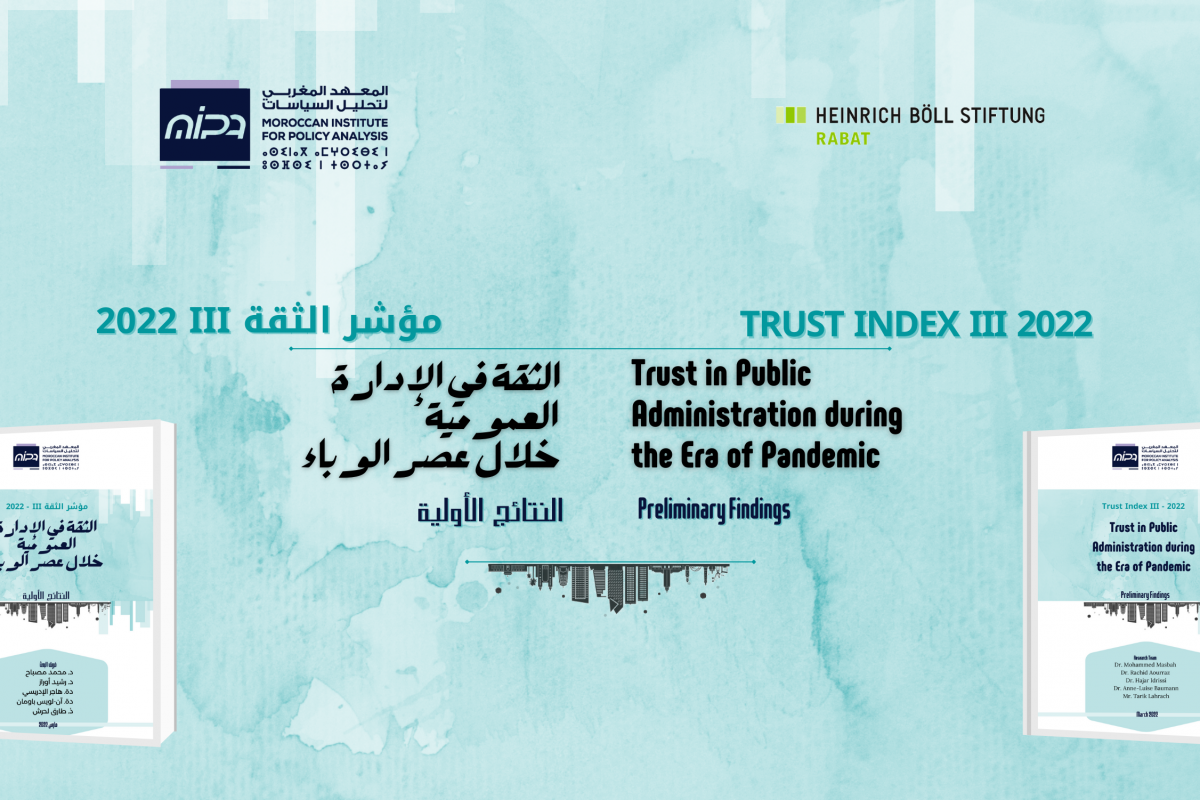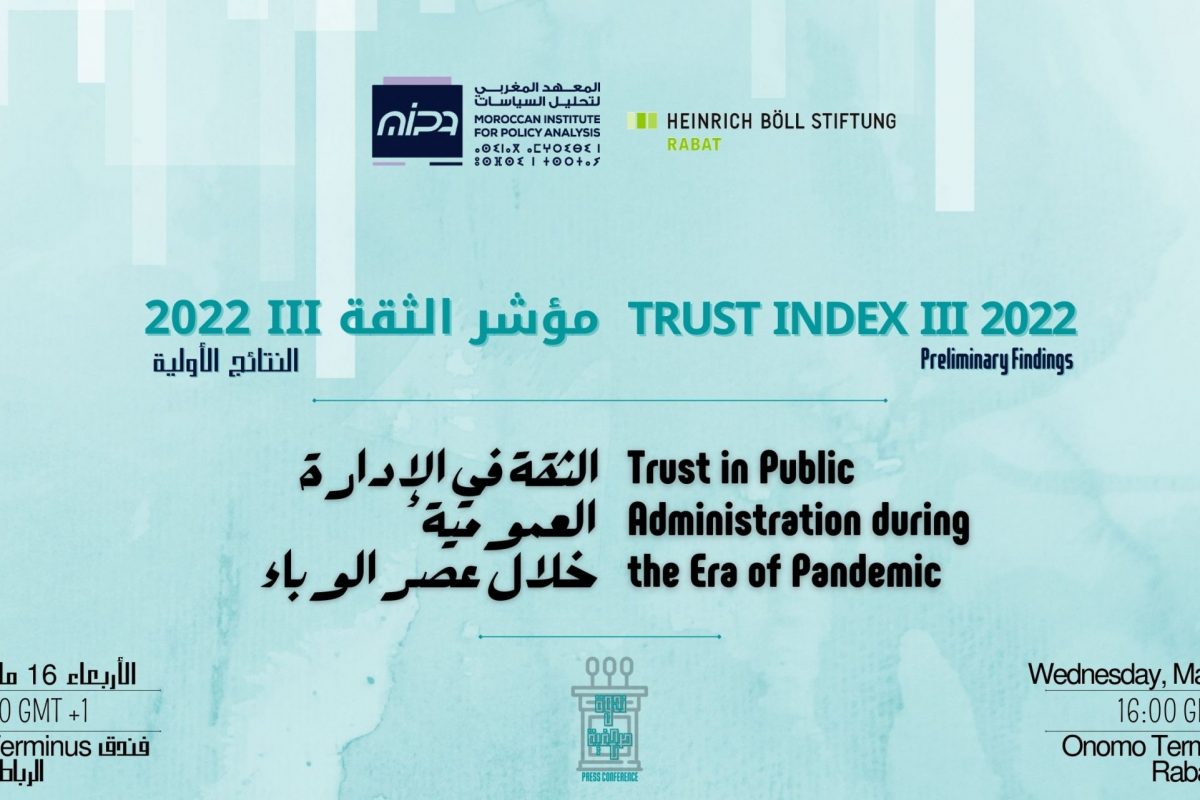The Trust in Institutions Index IV 2023: Is Political Trust in Morocco Declining?
Preliminary Results
Download the full report
The Moroccan Institute for Policy Analysis (MIPA) has developed the Trust in Institutions Index project to measure and analyze Moroccans’ level of confidence in various political, economic, and social institutions. This project aims to provide a platform for public debate on the issue of trust in institutions in Morocco and to make recommendations and proposals to decision makers in order to strengthen institutional trust.
The previous three reports discussed Moroccans’ trust in various institutions, including the parliament, education and healthcare sectors, and public administration. The first wave of Trust in Institutions Index I: The Parliament and Beyond (2020) was conducted before COVID 19 pandemic and it discussed the particular features of the trust and distrust of Moroccans in an institution which is central for the functioning of the democratic life of a country: The Parliament. Our analysis has shown that the parliament has been one of the least trusted institutions, both in the qualitative exploration and quantitative survey. It has been perceived as a non-functioning institution, in which MPs do not have a clear agenda and cannot be held accountable by the citizenry.
The second wave of Trust in Institution Index II: Education and Healthcare sectors (2021) identified the nature and level of trust in the education and healthcare institutions. Despite the health crisis associated with the spread of Covid-19 and the emergency conditions that imposed it, Moroccans still prioritized health and education according to our results. We discovered that the satisfaction levels in both private and public education sectors were quite similar, with no noteworthy disparities. In contrast, satisfaction levels concerning health sector services lagged behind those in education. Furthermore, a more pronounced discrepancy emerged between the public and private health sectors, as individuals reported greater satisfaction with the services offered in the private sector.
The third wave of Trust in Institution Index III: Public Administration (2022) shed the light on public administration and continued the diagnosis of Moroccan political trust after the 2021 September elections that revealed remarkable results and proved a change in citizens’ social and political attitudes. Overall, two out of three respondents expressed an overall satisfaction with the performance of the public administration. Moroccans were most satisfied with the infrastructure, accessibility and personal of public administration institutions, and least satisfied with the time needed to complete a task as well as the possibility to present formal complaints.
The Trust in Institutions Index IV: Political Institutions (2023) persistently assesses political trust in Morocco. Our analysis revealed that citizens are gradually losing confidence in elected institutions as a whole, and specifically in the current government. We have observed a reversion to trends that prevailed prior to the 2020 pandemic, during which trust in political institutions was notably low.
The report of Trust in Institutions Index IV: Political Institutions (2023) is divided into five main sections. The first section tackles trust in elected and non-elected institutions. Trust in these institutions can have significant impacts on society, as it affects how people engage with them and how they view their role in society. High levels of trust can lead to increased engagement and cooperation, while low levels of trust can lead to apathy, disengagement, and even distrust. The second section deals with the issue of social trust by analyzing the indicators of interpersonal trust, especially the willingness to trust others, including nuclear family, the extended family, neighbors and strangers. The third section is devoted to civic and political trust as one of the focal areas of trust index. The study relies on several indicators, including the interest and participation in the public sphere, partisan and civic affiliation, voting patterns, civic engagement, perceptions about government goals and priorities. The Fourth section touches upon government measures to fight corruption while the last section talks about the state’s future trajectory.
Download the full report
MIPA Institute
MIPA is a non-profit independent research institution based in Rabat, Morocco. Founded by a group of transdisciplinary researchers, MIPA’s mission is to produce systematic and in-depth analysis of relevant policy issues that lead to new and innovative ideas for solving some of the most pressing issues relating to democracy.



